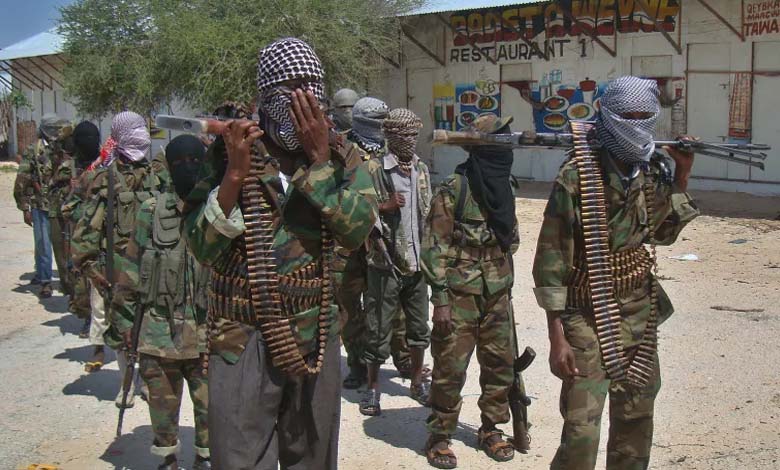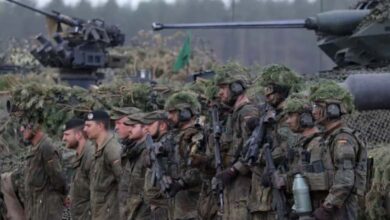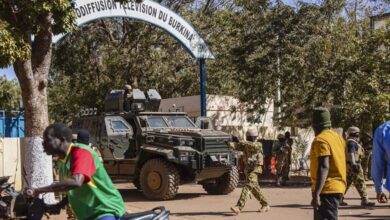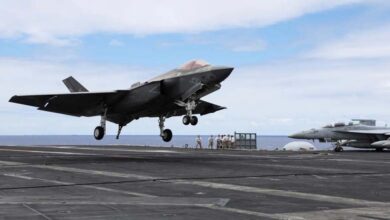Somalia Liberates Strategic City of Barire from Al-Shabaab

Regaining full control of this strategic city is considered a military achievement, as it serves as a key supply hub for financing Al-Shabaab’s attacks against government forces.
The Somali army and international peacekeeping forces (ATMIS) have “regained full control” of the strategic city of Barire, which had been held by Al-Shabaab, following more than a week of fighting, the Ministry of Defence announced on Friday.
-
With the Support of International Partners: 15 Al-Shabaab Terrorists Killed in Somalia
-
Dangerous Escalation by Al-Shabaab in Mogadishu: Motives and Strategic Implications
Al-Shabaab, affiliated with Al-Qaeda, has seized dozens of towns and villages since launching its offensive earlier this year, erasing all the gains the government achieved during its 2022–2023 military campaign.
In March, the group took over the city—which hosted a key operational base for the Somali army—without a fight, after government forces withdrew, and destroyed a key bridge crucial for military supply lines.
On August 1, the African Union Mission to Support Stability in Somalia launched a “major offensive” to retake Barire, located in the Lower Shabelle region.
-
Military Operation in Western Somalia Against Al-Shabaab… ATMIS Under U.S. Criticism
-
Will Somali authorities succeed in drying up Al-Shabaab’s sources of funding?
On Friday, the Somali Ministry of Defence announced that the army, in cooperation with Ugandan defence forces participating in the African Union mission in Somalia (ATMIS), had regained “full control” of the city.
The ministry’s statement said the recapture came “after a week of continuous battles.”
This operation is part of a broader military campaign launched last year by the Somali government, in coordination with the African Union mission and international allies.
The government aims to weaken Al-Shabaab’s capabilities before starting the third phase of the plan to transfer security responsibilities from the African Union mission to Somali forces by 2026. The recapture of Barire demonstrates the government’s determination to meet this target, despite significant challenges.
-
What Are the Risks of Increasing Cooperation between the Houthis and Somalia’s al-Shabaab? Observers Respond
-
Why is the Somali group “Al-Shabaab” one of the most important arms of transnational terrorist networks?
Barire’s importance lies in its strategic position: it is a main supply hub on the route linking the capital Mogadishu to the fertile agricultural areas of Lower Shabelle. It was also a key financial center for Al-Shabaab and a launch point for attacks against government forces.
According to the ministry, more than 100 Al-Shabaab fighters were killed during the operation. No casualties were reported among ATMIS forces.
The ministry added: “Security forces are continuing clearing operations in the city and surrounding areas, and large quantities of weapons and ammunition have been seized.”
-
New strategy by Al-Shabaab terrorist group in Somalia
-
Washington monitors Houthi discussions to supply weapons to Al-Shabaab
Despite the presence of over 10,000 African Union troops in the country, Al-Shabaab remains capable of mounting significant attacks. In late June, at least seven Ugandan soldiers were killed in clashes in Lower Shabelle. In March, the group claimed responsibility for a bomb attack that nearly hit the president’s convoy, and in early April, it fired several mortar rounds near the capital’s airport.
These developments highlight that the battle is far from over and requires a comprehensive strategy.
In another sign of the importance of the security file, Somali President Hassan Sheikh Mohamud appointed Ambassador Oweis Haji Youssouf as the new National Security Adviser, replacing Hussein Maalim Mohamoud. The change is seen as stemming from differences over managing the national security file and the strategy against Al-Shabaab. The new adviser is expected to play an active role in strengthening the national counterterrorism strategy.
-
Sanctions Target Money Laundering Network for Al-Shabaab – Details
-
Losses and Crises: Somali Al-Shabaab Movement Suffers Defeats Due to Its Terrorist Crimes
Analysts note that the Somali government follows a three-pronged strategy to confront Al-Shabaab: military operations to break its on-the-ground presence, intelligence strikes to dismantle its structure, and cutting off funding sources to hit its economic base. However, the group’s ability to retake some areas in central Somalia reveals gaps that need to be addressed.
Strengthening coordination between military and intelligence units, accelerating security sector reforms, and supporting local forces are urgent needs to overcome the geographic and logistical challenges of remote regions. Ultimately, the success of this strategy depends on providing security and stability to local populations and earning their trust, to prevent the group from returning to liberated areas.











